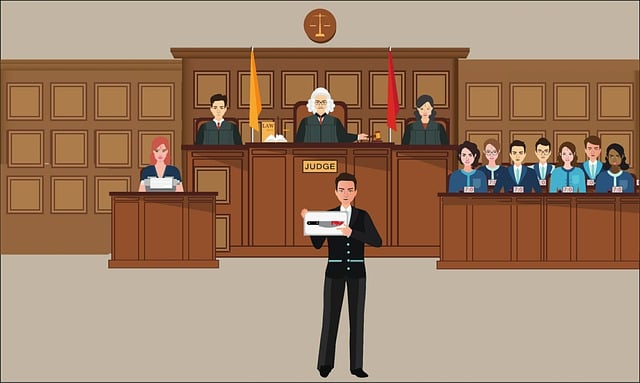In Oregon, defense attorneys play a multifaceted role, requiring them to master state laws, regulations, and court procedures. They are responsible for upholding ethical standards, ensuring procedural fairness, and protecting clients' rights through strategic advocacy, including evidence presentation, witness questioning, and legal argumentation. By staying informed through continuous legal education (CLE), these professionals maintain proficiency and contribute to the integrity of Oregon's criminal justice system.
In Oregon, defense attorneys play pivotal roles within a complex legal system. This article delves into the multifaceted responsibilities of these legal professionals, offering a comprehensive framework for understanding their crucial contributions. From navigating the state’s unique legal landscape to diverse courtroom strategies, we explore how Oregon defense lawyers interact with clients, build compelling case strategies, and advocate for their clients’ rights. Discover the ethical obligations and continuous learning requirements that shape the practice of law in this dynamic state.
- Understanding the Legal System in Oregon: A Framework for Defense Attorneys
- The Diverse Roles of Defense Lawyers in Oregon Courts
- Client Interaction and Confidentiality: Ethical Responsibilities
- Building a Strong Case Strategy: Research, Evidence, and Legal Arguments
- Courtroom Procedures and Advocacy Techniques Used by Oregon Defense Attorneys
- Continuing Education and Professional Development for Oregon Defense Lawyers
Understanding the Legal System in Oregon: A Framework for Defense Attorneys

In Oregon, understanding the legal system is paramount for defense attorneys as it forms the framework within which they operate. The state’s legal framework includes a complex interplay of laws, regulations, and court procedures that lawyers must navigate to ensure effective client representation. Defense attorneys in Oregon have specific lawyer responsibilities that involve not just challenging accusations but also upholding ethical standards. They play a crucial role in protecting the rights of individuals accused of crimes, ensuring that justice is served while maintaining the integrity of the legal process.
The legal system in Oregon emphasizes the balance between prosecuting offenses and safeguarding the rights of defendants. Defense attorneys are instrumental in achieving this balance by presenting evidence, questioning witnesses, and raising legal arguments on behalf of their clients. They must be well-versed in various areas of law, including criminal procedure, constitutional rights, and evidentiary rules, to navigate the intricate paths of Oregon’s legal system. This expertise enables them to provide informed guidance to clients, strategize effectively, and ultimately contribute to a fair and just outcome.
The Diverse Roles of Defense Lawyers in Oregon Courts

In Oregon courts, defense lawyers play multifaceted roles that extend far beyond simply representing clients in court. They are pivotal in ensuring procedural fairness and safeguarding individual rights. Beyond mounting defenses against charges, these lawyers engage in a range of activities including investigating facts, interviewing witnesses, negotiating plea deals, and crafting legal strategies tailored to each client’s unique circumstances. Their expertise is crucial for navigating the complex legal system, deciphering intricate laws, and protecting constitutional entitlements.
The responsibilities of a defense lawyer in Oregon encompass a comprehensive approach to justice. They advocate for their clients’ interests, challenge evidentiary admissibility, cross-examine witnesses, and present compelling arguments before judges and juries. Moreover, they contribute to the overall efficiency of the judicial process by ensuring that cases are resolved fairly and within legal parameters. Their work is foundational to maintaining a robust and equitable criminal justice system in Oregon.
Client Interaction and Confidentiality: Ethical Responsibilities

In Oregon, defense attorneys play a crucial role in ensuring fair legal representation for their clients. Client interaction and confidentiality are at the heart of an attorney’s ethical responsibilities. When interacting with clients, lawyers must maintain open communication channels while adhering to strict confidentiality rules. This means keeping all discussions private and avoiding any disclosure of sensitive information without the client’s consent.
Oregon attorneys have a duty to respect the privacy of their clients, ensuring that personal details remain confidential. They must establish trust by being transparent about legal processes and potential outcomes, fostering a partnership that respects the client’s autonomy and rights. This ethical framework not only safeguards clients’ interests but also upholds the integrity of the legal profession in Oregon.
Building a Strong Case Strategy: Research, Evidence, and Legal Arguments

In Oregon, defense attorneys play a pivotal role in building robust case strategies that protect their clients’ interests. Their primary responsibility is to ensure their client’s rights are upheld throughout legal proceedings. This involves meticulous research into relevant laws, precedents, and legal doctrines specific to Oregon’s judicial system. Defense lawyers must analyze and interpret complex information to devise effective arguments.
Evidence collection and analysis are crucial components of this process. Lawyers examine physical evidence, witness testimonies, and documentary proof to construct a compelling narrative that favors their client. Additionally, they craft powerful legal arguments based on constitutional rights, procedural rules, and statutory interpretations. By leveraging these strategies, Oregon defense attorneys aim to achieve the best possible outcome for their clients in criminal and civil cases alike.
Courtroom Procedures and Advocacy Techniques Used by Oregon Defense Attorneys

Oregon defense attorneys play a pivotal role in navigating complex courtroom procedures and employing strategic advocacy techniques to protect their clients’ rights. Their responsibilities extend far beyond simply presenting a case; they must be adept at understanding and adhering to state laws and regulations while utilizing effective communication strategies.
These lawyers are masters of procedural navigation, from preparing and filing legal documents to managing pre-trial hearings and motions. They employ a range of advocacy techniques, such as cross-examining witnesses, presenting mitigating evidence, and crafting persuasive arguments, to build robust defenses for their clients. By leveraging these skills, Oregon defense attorneys ensure that justice is served while advocating for the best possible outcomes in criminal and civil cases alike.
Continuing Education and Professional Development for Oregon Defense Lawyers

Oregon defense attorneys, like their counterparts across the nation, have a continuous responsibility to stay abreast of legal developments and enhance their skills through ongoing education. This is not just about fulfilling ethical obligations or maintaining licensure; it’s also about ensuring lawyers provide the best possible representation for their clients. The legal field is constantly evolving, with new case law, statutes, and regulations emerging regularly. Lawyers in Oregon must engage in continuing legal education (CLE) to keep up with these changes, maintain proficiency in their practice areas, and familiarize themselves with new strategies and tactics.
Professional development opportunities in Oregon cater to the diverse needs of defense attorneys. These include workshops focused on specific legal topics relevant to criminal defense, seminars on ethical considerations, and programs designed to sharpen trial skills. Many local bar associations and legal organizations offer CLE credits for these events, allowing lawyers to fulfill their educational requirements while expanding their knowledge and network. By investing in their professional growth, Oregon defense attorneys not only elevate their practices but also contribute to the overall integrity of the legal system.
